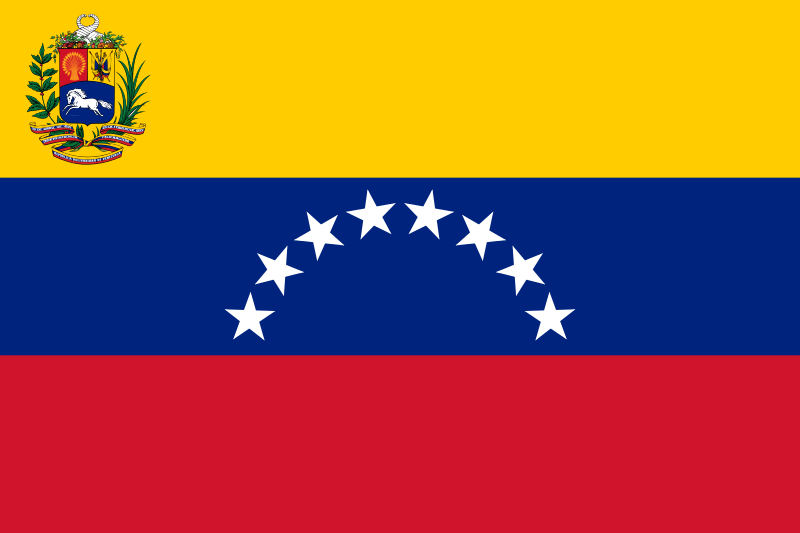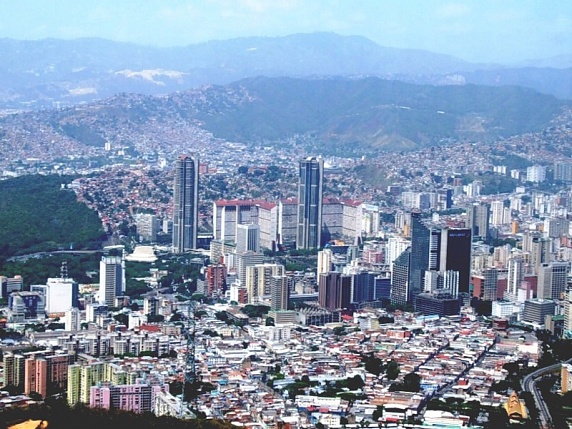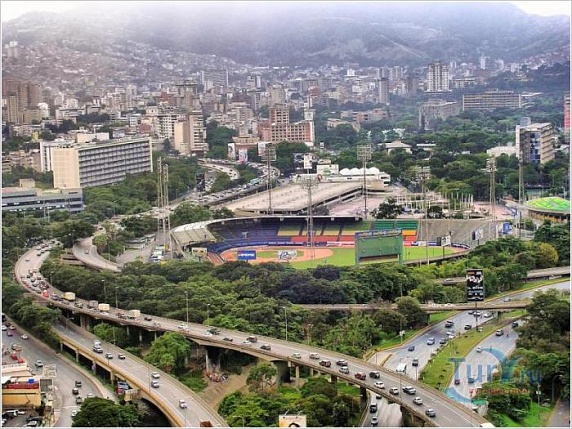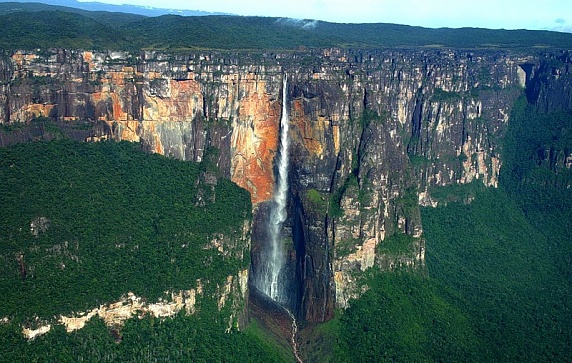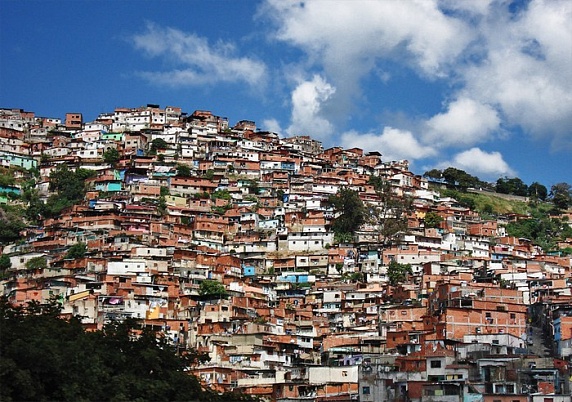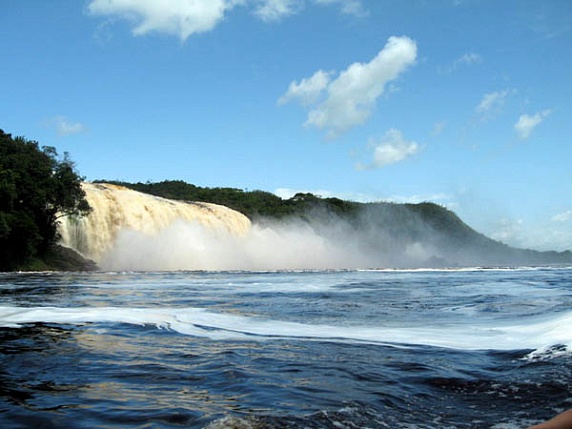 Боливарианская Республика Венесуэла
Боливарианская Республика Венесуэла
Deputy Director of the Information and Press Department Artyom Kozhin’s answers to Izvestia’s questions on the impact of sanctions on the humanitarian situation in Venezuela
Question: It is often said in the context of the developments in Venezuela that the humanitarian situation is difficult there now. The opposition blames Nicolas Maduro’s government for it. Several days ago, the USNS Comfort sailed to the coast of Latin America and the Caribbean under the pretext of providing aid to refugees from Venezuela. What does Russia think about this?
Artyom Kozhin: We are carefully monitoring the humanitarian aspect of the developments around Venezuela. The socioeconomic situation is complicated there. It is affected by an entire range of factors related to the structure of the national economy, volatile prices for raw materials and mistakes in the government’s economic policies.
However, the existing problems have been drastically aggravated by the illegal financial and economic sanctions put on Venezuela primarily by the US. No matter what Washington says, these allegedly targeted, but in fact harsh measures with indiscriminate effects hurt the interests of the least protected Venezuelans above all.
According to existing estimates, the total economic and social damage from banking and other restrictions exceeds $110 billion. It is obvious that even a small part of this sum would have solved the problem with the deficit of medicines and other essential goods.
Washington is ready to provide aid to Venezuelan emigrants with one hand and cynically strangle the country’s economy with the other, thus denying a normal life to ordinary people.
Question: Can you give specific examples?
Artyom Kozhin: I believe that the most brazen cases are related to the expropriation carried out by the US authorities for the Venezuelan opposition and the blocking of operation of the North American branch of PDVSA Citgo state-run oil company that followed. This company provides medical aid to Venezuelans living abroad who have rare diseases or diseases that cannot be treated in Venezuela, such as blood diseases, cerebral palsy, difficult types of anemia, a wide range of organ transplantation issues, including bone marrow transplantation, and microsurgery).
In particular, the АТМО ONLUS Venezuelan-Italian project that helps children with cancer was sanctioned. Since this March, European banks have been refusing to transfer money that would pay for treatments because they are threatened with sanctions. There were 26 children who needed help in March, but now there are fewer. Unfortunately, it was impossible to save some of them.
Question: You are not talking about the US but about European banks. They have the right to decide for themselves. What do the US sanctions have to do with this?
Artyom Kozhin: There is such a notion as secondary sanctions. This means that restrictions are placed on states or individuals who carry out transactions with countries, organisations or individuals under sanctions. The US authorities impose sanctions for violating sanctions on their own people and companies and also on companies and organisations from other countries, European above all, because over the last few decades, these sanctions have been becoming more exterritorial. The US actively abuses the high demand for the American financial system in international payments as well as close ties between the US financial market and many large companies. In addition to being economically beneficial, this situation gives Washington a significant political lever.
This is why the words that “the US has nothing to do with this” are mostly a ruse.
Question: Is that the only example?
Artyom Kozhin: Of course not. The US Citibank blocked the money Nicolas Maduro’s government allocated to purchase 300,000 bottles of insulin. According to the estimates of the Venezuelan Healthcare Ministry, about 450,000 patients were affected by this.
The Colombian office of the German pharmaceutical company BSN medical refused to provide two million units for malaria treatment and prevention that had already been paid for, under the pressure from Washington. This has resulted in a sharp increase in malaria cases.
UBS, a Swiss bank, unilaterally stopped servicing accounts of the Bolivarian Republic, which made it impossible to timely pay the WHO/PAHO fees to purchase medicines for a scheduled vaccination. Venezuela missed the deadline for the prevention measure because an alternative way was needed to settle the account, which badly affected the sanitary conditions in the country.
The similar behaviour of the Spanish bank Santander, clearly because of the risk of falling under US sanctions, has made it impossible to purchase spare parts for cardiovascular surgical equipment at the Gilberto Rodriguez Ochoa Latin American Children’s Cardiology Hospital. As a result, about 800 children cannot have surgery.
The list goes on. As you can see, the unilateral US restrictions affect concrete projects in healthcare as well as the interests of the most vulnerable people: children, seniors and seriously ill patients.
Question: Does the US administration know this?
Artyom Kozhin: I believe it is time we speak about this publicly. To be honest, at the meeting in Rovaniemi held on May 6, Foreign Minister Sergey Lavrov discussed the problem concerning the Venezuelan-Italian project with US Secretary of State Michael Pompeo. We waited for a response for more than a month.
May I refrain from quoting it? There is a saying in Russia: “Those who want to do something will find a way, and those who don’t will look for excuses.” The Americans used fantastic rhetoric to prove that they cannot be blamed for the deaths of children with cancer.
As they say, this logic beats me. In the end, it is your choice what you think about the government of a sovereign country, but even a basic sense of compassion should have made them look for a solution, especially because officials in Washington have the ability to do this.
Question: Do you believe it is necessary to provide humanitarian aid to Venezuela?
Artyom Kozhin: This aid is already being provided, by Russia as well as China, the International Committee of the Red Cross and the specialised UN humanitarian agencies. We all act in strict compliance with the fundamental UN General Assembly Resolution 46/182, with the consent and at the request of the legitimate government, respecting the principles of humanity, neutrality, impartiality and independence. The work is being done as it should: systemically and without politicised hype.





